#google vs chat gpt
Explore tagged Tumblr posts
Video
youtube
They explore the impact of AI on marketing, the changing job landscape, and the importance of balancing AI with human skills. They also provide valuable insights on how to prepare and educate yourself to stay ahead in the AI-powered marketing arena. For more click here
#youtube#artificial intelligence#google vs chat gpt#google ai#what is chatgpt#how to use google bard ai chatbot#ai for business#how to use ai in business#unlock the power of ai#how to use ai in your business#ai for content creation#ai for content creators#ai content#ai content creation dominance#open ai#ai tools#what you need to know#ai skills#ai skills required#ai skills for the future#ai skills for digital marketers#ai and digital marketing
0 notes
Text
All to Know About Google’s Ai Chatbot
Since it was made public last year, Microsoft-backed google bard ai vs chat gpt has taken the tech world by storm, with people all over the world getting creative with prompts. Conversational chatbots can generate anything from poetry and novels to jokes and film scripts.

1 note
·
View note
Text
What is the difference between Chat GPT and Google Bard?
Artificial Intelligence (AI) never fails to impress people. One of its recent innovations, including the uncanny Chabot named Chat GPT, has been taking the internet by storm since the end of 2022. Undoubtedly, Chat GPT is a hot topic right now. From promptly answering queries to creating quality content, Chat GPT is no less than a gold mine for businesses. This time and cost-cutting option have created endless possibilities for digital marketers and businesses to fulfill their content needs.
Soon after the launch of Chat GPT, Google announced its AI chat service, Bard, a direct competition to Open AI's Chat GPT. Both Chat GPT and Google Bard are AI language models, but there are some key differences.
What is Chat GPT?
Chat GPT, launched by OpenAI in November 2022, is an AI-based Chabot system. The AI Chabot can stimulate real conversations with a human, search the internet for information, answer queries, and come up with ideas and more. Chat GPT has received tons of attention since its launch in November 2022, and for good reasons. Chat GPT is powered by large amounts of data and computing techniques to make predictions to string words together in a meaningful way. Even Microsoft saw its potential and promptly invested $10 billion into OpenAI.
How does Chat GPT work?
Chat GPT is supported by a sophisticated algorithm called a large language model. These algorithms are incorporated with massive amounts of textual data that allows them to respond to prompts in a realistic, human-like fashion, a computational system known as natural language processing.
How do you use Chat GPT?
Chat GPT is highly effective and easy to use. To get started, first, you'll need to create an OpenAI account. It is easy to set up and only requires mentioning an email address and phone number. Once you fill in the required details, you'll be able to use Chat GPT and the company's other tools, like DALL E 2, an AI art tool that creates illustrations based on text prompts.
Just like a normal messaging app or Chabot, ChatGPT includes a text field where you can type in your questions or requests. All you need to do is give the Chabot a prompt, and it will respond within seconds.
For example, the questions you ask from Chat GPT can range from basic to difficult such as 'Why is the sky blue?' or 'Can you write an introductory video script for my company?' This Chabot is ready to answer any question, so feel free to get creative.
However, using Chat GPT can be a bit frustrating for the average user. Using Chat GPT requires an approach and knowledge of the kind of questions you should ask the AI Chatbot. Moving ahead, we are going to discuss how you should go about using the Chat GPT.
Let’s take a look at the key differences between Google Bard and Chat GPT:
· Google Bard is designed to gather information from data and sources already available on the internet. On the other hand, Chat GPT's knowledge is limited to events through 2021. Bard will access up-to-date information and provide more current information.
· Google bard has access to a plethora of data and can be integrated with Google’s search engine, giving it a competitive edge over Chat GPT, which is backed by Microsoft.
· �� Chat GPT is prone to making up facts and stories. On the other hand, Google Bard is thought to provide more accurate data to users.
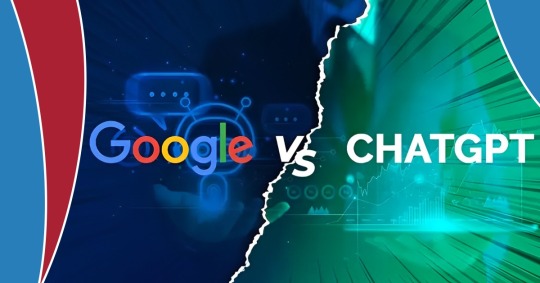
0 notes
Photo
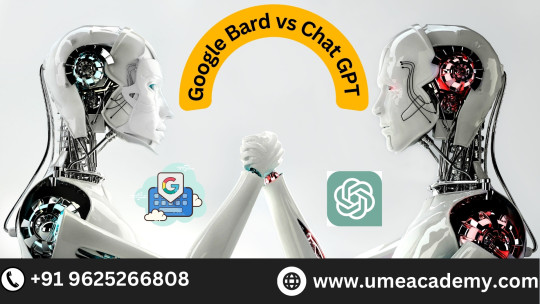
Google Bard vs Chat GPT
Google BARD Vs Chat GPT is both language models designed to generate human-like responses to user queries. While Google BARD is a large-scale generative language model trained by Google, ChatGPT is a variant of OpenAI's GPT model, which is trained to engage in human-like conversations. Visit our website to learn more about both language models.
0 notes
Text
Google Bard vs Chat GPT
Google BARD Vs Chat GPT is both language models designed to generate human-like responses to user queries. While Google BARD is a large-scale generative language model trained by Google, ChatGPT is a variant of OpenAI's GPT model, which is trained to engage in human-like conversations. Visit our website to learn more about both language models.
0 notes
Text
Deepseek vs Google Gemini vs ChatGPT: Which AI Brain Would You Pick? 🌟**
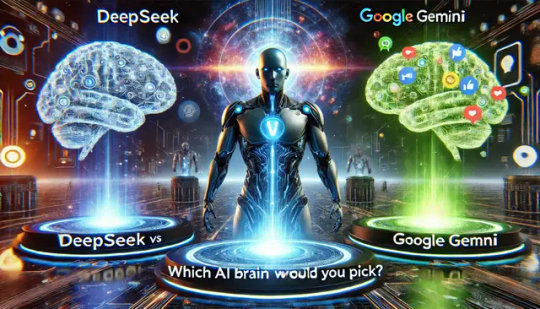
Hey, digital wanderers! Let’s talk about the three AI heavyweights currently vibing in the techosphere: *Deepseek, **Google Gemini, and **ChatGPT. They’re all brainy, but they’ve got *very different personalities. Let’s break it down like we’re judging a talent show (but for robots).
---
### *1. Deepseek 🧠*
*The Niche Genius*
Born in China’s tech labs, Deepseek is like that friend who aces calculus and writes code in their sleep. It’s laser-focused on *technical tasks*—think data analysis, coding help, and hyper-accurate research. Need to debug Python at 3 AM? Deepseek’s your caffeine-free fix.
*Strengths:*
- *Code whisperer*: Fixes errors, writes scripts, and explains algorithms like a patient tutor.
- *Data wizard*: Crunches numbers and spots trends faster than you can say “spreadsheet.”
- *Minimal fluff*: Straightforward, no chit-chat (unless you beg).
*Quirks:*
- Not the best at creative writing or casual banter.
- Still learning non-English languages.
*Best for:* Developers, analysts, and anyone who dreams in binary.
---
### *2. Google Gemini 🤖*
*The Smooth Operator*
Google’s answer to “What if AI could do… everything?” Gemini is the ultimate multitasker. It’s baked into Google’s ecosystem (Workspace, Search, etc.), so it feels like that one friend who’s weirdly good at organizing your life. Plus, it’s *multimodal—meaning it *sees, hears, and talks (yes, you can yell at it).
*Strengths:*
- *Ecosystem king*: Syncs with Google tools like Docs, Sheets, and your soul (just kidding… maybe).
- *Multimedia maestro*: Analyzes images, videos, and audio. Show it a meme, and it’ll explain the joke.
- *Safety first*: Google’s strict guardrails keep it PG-13 (no existential crises here).
*Quirks:*
- Can be overly cautious (avoids spicy opinions like a toddler avoids broccoli).
- Still rolling out, so some features feel like a “coming soon” trailer.
*Best for:* Google loyalists, students, and anyone who wants AI to handle their errands.
---
### *3. ChatGPT 🎨*
*The Creative Chaotic*
The OG crowd-pleaser! ChatGPT is like that artsy friend who writes poetry, roleplays as a pirate, and occasionally makes up fake historical facts. With GPT-4 (and plugins!), it’s a Swiss Army knife of creativity and chaos.
*Strengths:*
- *Storyteller supreme*: Writes novels, jokes, and fanfic about sentient toasters.
- *Customizable*: Plugins let it book flights, analyze PDFs, or teach you piano.
- *Personality++*: Sassy, empathetic, or professional—you pick the vibe.
*Quirks:*
- Sometimes hallucinates (e.g., “Shakespeare definitely wrote Star Wars”).
- Requires clever prompting to avoid rambling.
*Best for:* Writers, curious minds, and anyone who wants AI with ✨rizz✨.
---
### *So… Who Wins?*
- *Need to code?* Deepseek.
- *Living in Google-land?* Gemini.
- *Want creativity + chaos?* ChatGPT.
Or just rotate all three and feel like an AI CEO.
*Poll time!* Which would you trust with your to-do list:
🔵 Deepseek’s precision
🟠 Gemini’s Google magic 🟢 ChatGPT’s chaotic charm
*Visual vibe:* A doodle of three robots arm-wrestling on a laptop keyboard, with coffee cups labeled “CODE,” “SEARCH,” and “ART” spilling everywhere. 🌈✨
3 notes
·
View notes
Text
Step-by-Step Guide to Developing Your First Generative AI Chatbot
Developing a generative AI chatbot can be an exciting and rewarding project. By the end of this guide, you'll understand the essential steps required to create your own chatbot, from concept to deployment. Let’s dive straight into the process.
1. Define the Purpose and Scope of Your Chatbot
The first step in developing a generative AI chatbot is identifying its purpose and scope. Ask yourself:
What problems will the chatbot solve?
Who is your target audience?
What kind of interactions will it handle?
For example, if you're building a customer service chatbot, it might need to handle inquiries about product availability, pricing, and returns. Defining the chatbot’s scope will ensure you stay focused throughout the development process.
Additional Considerations:
Goals: Clearly outline the success metrics for your chatbot. For instance, it could be customer satisfaction, response accuracy, or average handling time.
Personality: Decide if your chatbot will have a specific tone or personality (e.g., formal, friendly, humorous).
Limitations: Acknowledge what the chatbot will not handle to avoid confusion for users.
2. Choose the Right Platform and Tools
Depending on your technical expertise and requirements, you’ll need to select the right platform and tools. Popular options for developing generative AI chatbots include:
OpenAI’s GPT Models: Known for their advanced language generation capabilities.
Google’s Dialogflow: A powerful tool for building conversational experiences.
Rasa: An open-source framework for building AI assistants.
Key Factors for Selection:
Ease of Use: Platforms with intuitive interfaces and documentation can save development time.
Cost: Evaluate subscription costs, API fees, and hidden charges.
Flexibility: Check if the platform supports integrations with your preferred tools or services.
Select a platform that aligns with your development skills, project needs, and budget.
3. Gather and Prepare Training Data
Generative AI chatbots rely on large datasets to generate meaningful and contextually relevant responses. If you’re using a pre-trained model, the chatbot will already have general conversational abilities. However, you might still need to fine-tune it with domain-specific data.
Sources of Training Data
Existing Databases: Use your company’s historical chat logs, FAQs, or customer interactions.
Public Datasets: Leverage open datasets available on platforms like Kaggle or Hugging Face.
Manual Data Creation: Write sample conversations to provide tailored examples for your chatbot.
Data Cleaning
Ensure the data is clean and consistent by:
Removing irrelevant or duplicate entries.
Correcting grammatical and spelling errors.
Structuring the data into a format suitable for training.
Data Augmentation
To further enhance your dataset, consider:
Synonym Replacement: Introduce variations in phrasing.
Paraphrasing: Create multiple versions of the same response.
Simulated Conversations: Generate hypothetical dialogues based on real-world scenarios.
4. Select a Generative Model
Generative AI chatbots are powered by models trained to generate human-like text. Some popular models include:
GPT-3 and GPT-4: Developed by OpenAI, these models are robust and versatile.
LLaMA: A large language model by Meta, suitable for various conversational tasks.
T5 (Text-to-Text Transfer Transformer): A model by Google, ideal for sequence-to-sequence tasks.
Key Considerations:
Pre-trained vs. Custom Models: Decide whether to use a pre-trained model or build one from scratch.
Compute Resources: Ensure you have access to the necessary computational power for training and inference.
API Accessibility: Verify that the model’s API integrates smoothly with your application.
You can either use these models as-is or fine-tune them for your specific use case.
5. Develop the Chatbot’s Logic and Flow
To create a seamless user experience, you’ll need to define the conversational flow. Even though generative models are highly capable, having a logical framework ensures consistency and efficiency.
Steps to Define Logic:
Map Key Scenarios: Identify the main use cases and expected user queries.
Design Responses: Outline how the chatbot should respond to each scenario.
Fallback Mechanisms: Plan for situations where the chatbot cannot provide an adequate answer, such as redirecting the user to a human agent or offering generic responses.
Additional Tips:
Intent Classification: Use intent detection algorithms to categorize user queries.
Context Management: Implement techniques to track conversational context, ensuring coherent and relevant responses.
Dynamic Responses: Incorporate variability in responses to make interactions feel natural.
Tools like flowchart software or conversational design platforms can help visualize and refine this logic.
6. Train and Fine-Tune Your Model
Training involves feeding your chatbot’s model with data to improve its performance. Fine-tuning helps the chatbot understand domain-specific language and context.
Training Steps:
Set Up the Environment: Use cloud platforms like AWS, Google Cloud, or Azure for the computational power needed.
Prepare the Data: Organize your training data in the required format (e.g., JSON or CSV).
Run Training: Train your model using libraries like PyTorch or TensorFlow, or leverage the fine-tuning capabilities of pre-trained models.
Evaluate Performance: Test the model using validation datasets to ensure it generates accurate and contextually relevant responses.
Fine-Tuning Tips:
Use transfer learning to leverage pre-trained knowledge while adapting to your specific needs.
Monitor overfitting by evaluating the model on unseen data.
Optimize hyperparameters for improved training efficiency.
7. Integrate the Chatbot with a User Interface
Once your chatbot is trained and fine-tuned, you’ll need to integrate it with a user interface (UI) so users can interact with it.
Common UI Options:
Web Chat: Embed the chatbot into a website using JavaScript or third-party widgets.
Mobile App: Add chatbot functionality to your app via an SDK or API.
Messaging Platforms: Deploy the chatbot on platforms like WhatsApp, Facebook Messenger, or Slack.
API Integration:
If your chatbot is hosted on a server, provide API endpoints that the UI can use to send and receive messages. Popular frameworks like Flask or FastAPI can help set up these endpoints.
Design Best Practices:
Intuitive Layout: Keep the interface simple and user-friendly.
Quick Actions: Include buttons for common actions to streamline interactions.
Accessibility: Ensure the interface is accessible to users with disabilities.
8. Test the Chatbot Thoroughly
Testing is a critical phase to ensure your chatbot performs as expected. Conduct comprehensive testing to identify and resolve issues.
Types of Testing:
Functional Testing: Verify the chatbot handles all intended queries and scenarios.
User Testing: Involve real users to assess the chatbot’s usability and effectiveness.
Performance Testing: Measure response times and the chatbot’s ability to handle multiple concurrent users.
Edge Case Testing: Test unusual or unexpected inputs to see how the chatbot reacts.
Automated Testing:
Use testing frameworks to simulate user interactions and validate chatbot behavior. Popular tools include Botium and TestMyBot.
9. Deploy Your Chatbot
After thorough testing, you’re ready to deploy your chatbot. Choose a reliable hosting environment based on your expected traffic and performance needs.
Deployment Steps:
Select a Hosting Platform: Use cloud services like AWS, Google Cloud, or Microsoft Azure.
Set Up Load Balancing: Ensure your chatbot can handle high traffic without downtime.
Monitor Performance: Use analytics tools to track user interactions, identify issues, and optimize the chatbot’s performance.
Post-Deployment Checklist:
Ensure SSL encryption for secure data transmission.
Test the chatbot in the live environment to confirm seamless functionality.
Set up automated backups to prevent data loss.
10. Monitor and Improve
Even after deployment, your work isn’t done. Continuously monitor the chatbot’s performance and make improvements.
Key Activities:
Analyze User Feedback: Collect and analyze feedback to identify areas for improvement.
Update the Model: Periodically retrain the model with new data to enhance its capabilities.
Add Features: Based on user behavior and requirements, introduce new functionalities over time.
Metrics to Track:
Accuracy: Measure how often the chatbot provides correct responses.
Engagement: Track the average number of interactions per session.
Retention: Evaluate how frequently users return to use the chatbot.
Tools and Resources for Chatbot Development
Here are some helpful tools and resources:
AI Libraries: Hugging Face, TensorFlow, PyTorch
Dataset Sources: Kaggle, Open Data Portals, GitHub repositories
Integrated Development Environments (IDEs): Jupyter Notebook, PyCharm
Version Control: GitHub, GitLab
Monitoring Tools: Google Analytics, Firebase, or custom dashboards
Conclusion
By following this step-by-step guide, you can create a generative AI chatbot tailored to your specific needs. Start small, focus on a well-defined purpose, and iteratively improve your chatbot. With persistence and the right tools, you’ll soon have a functional and efficient chatbot ready to engage users.
0 notes
Text
Top 5 AIs that speed up your coding
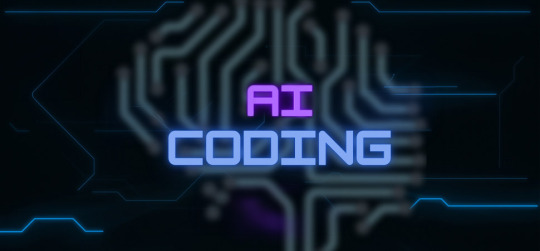
AI-based coding assistants have become an integral part of the development process, they help you generate code, understand code, search for projects and perform various tasks with the help of hints and code. Cloud-based IDE platforms like Google Colab and Deepnote also offer AI-based coding features to help generate code and solve problems.
In this article, we will highlight five AI-powered coding assistants that deserve a closer look. All of them come with VSCode extensions and are easy to customise. Just install them and you can get used to a new, simpler way of programming.
1. GitHub Copilot
GitHub Copilot is an artificial intelligence tool that helps programmers write code more efficiently. By installing the Copilot extension in VS Code, developers will be able to generate and understand code, as well as customise the editor's autocomplete features. Compared to other tools, Copilot is a mature product that provides the most relevant and accurate advice. The new chat feature allows developers to generate, modify and improve code using natural language, even when they are on the go. In addition, the integrated chat allows you to generate code directly in a text editor. The only downside to GitHub Copilot is that it is a paid tool. However, if you're a full-time developer or software engineer, a few dollars a month is a great deal.

2. Codeium
Codeium is a widely known free tool that has recently become popular. It offers most of the features of GitHub Copilot, and the best part is that it's free for personal use. Using Codeium, you can ask a question about a file and it will read it and give you an appropriate answer. You can also ask to rewrite, explain, improve or fix the code. There is also an autocomplete function, but since Codeium's autocomplete is not always accurate, it is recommended that you use the old Python autocomplete function. The only drawback of Codeium is that it doesn't always generate the latest version of the code.
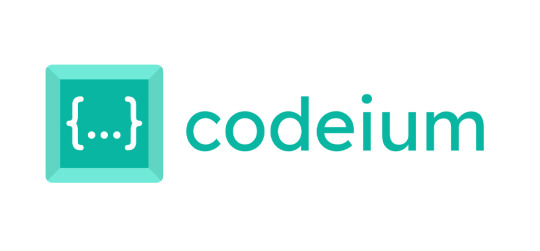
3. Cody
Cody is an artificial intelligence-based code writing assistant designed to increase the speed of writing and understanding code. It offers similar features to Codeium such as chat, commands, code interpretation and auto-complete. It is available in both free and professional versions. I've been using Cody for almost two months now, and it worked very smoothly until I started using it for data science and machine learning projects. Unfortunately, I found that the code it generated was inaccurate because it didn't take context into account. However, based on personal experience with Codeium and Cody, I found that Cody could not understand the code and sometimes produced inaccurate autocomplete suggestions. Therefore, I prefer Codeium over Cody.
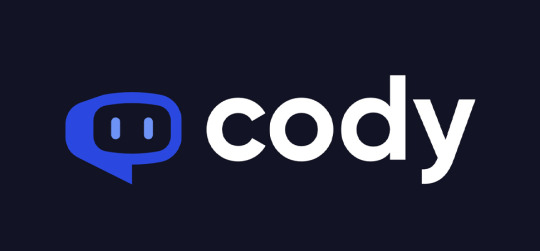
4. Code GPT
I recently discovered Code GPT: Chat & AI Agents, which integrates all the latest large-scale language models and offers a number of features that impressed me. This extension offers many features including AI chat support, code interpretation, error checking and auto-complete. This extension is free to use if you have access to the OpenAI API or other platforms. I tested it with Google AI, Anthiopic AI, and the OpenAI API. The Claude 2.1 API is fast, but the accuracy is low. To make it more usable, developers need to reduce autocomplete latency and solve the problem of generating inaccurate responses. One solution is to use Codeium for autocomplete and CodeGPT for code generation and problem solving.
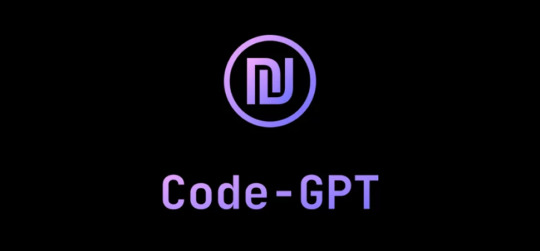
5. Tabnine
Tabnine is an artificial intelligence coding assistant that speeds up and simplifies the software development process. It also ensures code privacy, security and compliance. Tabnine is currently used by over a million developers across industries and has been downloaded 7 million times on VSCode. There is a free version of Tabnine, but it may not be as effective as the Pro version. If you need better coding help, it's worth considering purchasing the Pro version. However, the autocomplete feature in the free version is still fast and accurate. If you want to try Tabnine, you can take advantage of the 90-day trial version. Keep in mind that you will need to enter your payment details to access the trial version.
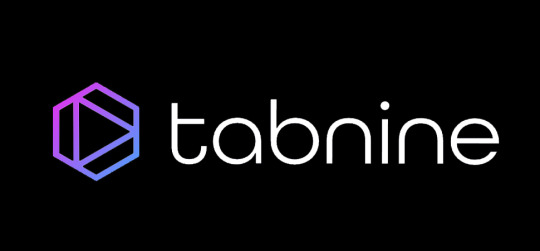
Summary
Code assistants with artificial intelligence are revolutionising software development by increasing programmers' efficiency and productivity. In this article, we've outlined the top five AI-powered code assistants that we think everyone who struggles with logic, formatting, and testing code should use.
Implementing one or more of these assistants into your workflow will increase productivity, generate and understand code faster, and solve problems faster so you can focus more on coding. Ultimately, these AI assistants will help developers spend less time working on code, which means more time developing great software. Try them out on your next project!
0 notes
Text
For Online Tech Writing Students: Intro + Lit Review Notes (11.14.24)
Link to Google Doc (content pasted below):
Formatting
Headings: Follow the heading formatting guidelines described in my comment at the top of the Project 5 doc, as well as on the Purude APA site.
APA: Use APA style. There are many free sites that will do this for you, but the main gist for parenthetical citation is parentheses with citation with author’s last name, the date of publication, and a page number preceded by ���p.” There is a “References” list instead of a “Works Cited” like APA, and this is differently formatted than MLA, if that is what you are used to.
Writing Style and Organization: Paper vs. Proposal: Follow the formatting guidelines. The various sections of a proposal are designed to make information quickly accessible, not to take the reader “on a journey of discovery,” as I often say to my Core Writing students. Three parafgraphs without a subheading is about the limit for this kind of document.
Introduction
Problem: Grab reader’s attention with the problem as problem first.
Problem: Don’t use lack of a specific solution as the problem. That will only convince those who might already agree with you!
Problem: Don’t use paradigm as problem. For example, access to health care is a solution, not a problem. See previous note.
Literature Review
Paradigm: One of your paradigm-theory sources should address the bigger current consensus on the solution. If you are discussing student stress, then make sure you address what the general consensus on dealing with stress is now. If you make all of your paradigm-theory sources population-specific, then you will alienate potential patrosn who might not be a part of that population at the moment!
Models: You should have at least five models at this point. Example: Your topic is the quality of food on campus. Possible models are what these places are doing:
Penn State
IUP
Penn State-Greensburg
Seton Hill
SVC: The last model should always be what is already going on at the place in question because your evaluation of this kodelk will lead directly into your plan, and the Plan section comes after the Literature Review.
AI
I’m seeing a lot more of what looks like AI-generated text across my classes at thjis point in the semester. Please don’t do this. AI-generated text may sound polished, but is often too polished and kind of empty, like a politician’s words. Feel free to use AI to help you with research, organization, citation, and lots of other things, but don’t let it write for you.
For example, this is Chat GPT’s version of an AI warning for college research-writing students. I highlighted many things that let me know right away that this is AI: “Dear students, As you embark on your college-level research and writing journey, you’ll likely encounter various tools designed to help with organization, brainstorming, and data gathering. Many students are now exploring AI-based tools to assist with research planning, structuring arguments, and even locating credible sources. While these tools can enhance your learning and productivity, it’s essential to set clear boundaries on how you use them. AI can be beneficial for generating ideas, helping you outline your arguments, or even locating relevant sources. However, relying on AI to write your papers can undermine your learning and put you at risk for academic misconduct. When you turn to AI for actual writing, the work often lacks genuine analysis, depth, and originality – elements that your professors are looking for and that can only come from your unique engagement with the material. Additionally, AI-generated writing tends to miss the authenticity and personal voice that are vital to strong academic writing. Using AI as an aid rather than a replacement for your writing will deepen your understanding of your subject, improve your writing skills, and ensure your work reflects your own ideas. Remember: the knowledge and skills you gain from doing the writing yourself are irreplaceable. So, let AI be your assistant, but not your author.”
0 notes
Text
ChatGPT 4 vs Gemini: Which AI Model Best Fits Your Needs?
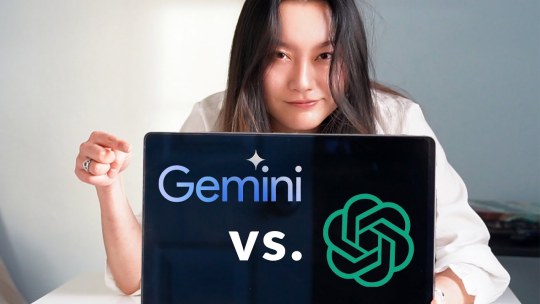
Two of the top generative AI programs currently available are OpenAI’s ChatGPT-4 and Google’s Gemini AI. Both offer intuitive interfaces that allow users to create content, ask questions, chat, and troubleshoot problems. Although they share similarities, each tool has unique strengths, making them valuable for different tasks. Here, we’ll dive into what each program offers, their key differences, and which one might suit your needs best.
What is ChatGPT-4?
ChatGPT-4 is a conversational AI developed by OpenAI. Think of it as an advanced program trained on a massive amount of data, designed to understand and respond to users in a conversational manner. It’s like talking to a friendly, knowledgeable assistant who’s ready to help with almost anything.
Whether you need help with a question, want to brainstorm ideas, or just want to chat, ChatGPT-4 is there to provide relevant, thoughtful responses. It excels at natural language understanding and can handle a wide range of topics, from casual conversations to more complex inquiries. Many users find it especially helpful for tasks like summarizing content, generating text, answering questions, and even writing short stories.
In short, ChatGPT-4 is a go-to choice for anyone looking for a well-rounded conversational AI capable of handling a wide variety of requests.
What is Gemini AI?
Google’s Gemini AI is another powerful player in the generative AI landscape, designed to assist computers in understanding complex concepts and making informed predictions. Gemini employs advanced AI techniques that enable it to think, analyze, and “learn” in ways that mimic human cognition, though it’s still a computer at heart.
Gemini AI is especially skilled at tasks that require deeper understanding and reasoning, such as tackling complex math or science problems or processing large sets of data to find patterns. In practical applications, Gemini AI can assist with language understanding, image recognition, and more, helping users gain insights from information quickly and effectively.
For those needing support with tasks that involve analyzing large volumes of data or handling complex ideas, Gemini can be a valuable assistant, bringing an extra layer of intelligence to the table.
Is Gemini Better than GPT-4?
Both ChatGPT-4 and Gemini AI offer unique advantages, each serving different purposes based on user needs. Here’s how they compare:
Strengths in Reasoning and Problem-Solving:
Gemini: Known for its ability to understand complex concepts, Gemini shines in areas like logical reasoning, data analysis, and deep thinking. It’s like having a very analytical, problem-solving assistant who can break down difficult subjects and provide clear, insightful feedback. Gemini is particularly strong in areas that demand deep analysis or technical knowledge.
ChatGPT-4: While GPT-4 is also a powerful tool, its specialty lies in generating human-like text and understanding conversational language. It’s great for answering questions, summarizing text, and holding engaging conversations. For tasks that involve explaining topics in simple terms or writing with a natural tone, GPT-4 may be more suitable.
Language Generation and Text Composition:
ChatGPT-4 stands out for its fluid and human-like writing capabilities. It’s perfect for creating articles, and stories, and even writing assistance for emails or social media content.
Gemini also supports natural language processing but is more geared toward technical tasks, where it can offer precise and calculated answers.
Key Differences: ChatGPT-4 vs. Gemini AI
Aside from differences in language models and underlying data sources, ChatGPT-4 and Gemini AI vary in other significant ways:
Conversational Learning: ChatGPT-4 has strong conversational abilities, holding context across interactions, which makes it feel more engaging and lifelike in long discussions. Gemini AI has some conversational abilities, but they’re generally more limited in scope.
Multiple Drafts: Gemini provides a “View Drafts” feature, letting users see multiple versions of responses to the same question. ChatGPT-4, however, typically provides a single, refined response to each query.
Editing Responses: With Gemini, users can edit responses even after they’ve been generated. ChatGPT-4 does not currently offer this feature, so responses remain static once submitted.
Real-Time Internet Access: ChatGPT-4 recently added real-time internet access, though this feature is only available in its paid version. Gemini, by contrast, always could access the internet in real-time, providing up-to-date responses without the need for premium subscriptions.
Image Recognition: Gemini AI includes built-in internet image search capabilities, allowing it to source relevant pictures as part of its response. ChatGPT Plus and other advanced versions now support some image-generation capabilities, but real-time image search and access are primarily available through Gemini.
Text-to-Speech: Gemini includes a text-to-speech feature, making it possible to read responses aloud. ChatGPT-4 currently lacks native text-to-speech abilities.
Which AI Model is Better for You?
If you’re wondering whether to use Gemini or GPT-4, consider your needs. Here’s a quick guide:
For Advanced Problem-Solving: If you need help with complex problem-solving, deep reasoning, or analyzing data, Gemini may be the better choice. Its strength lies in tackling subjects that require in-depth analysis.
For Everyday Communication: If you’re looking for assistance with casual conversations, simple explanations, or content creation, ChatGPT-4 is likely to be more effective. Its natural tone and conversational ease make it ideal for everyday use.
Accessing Real-Time Information: If real-time internet access is a priority, Gemini’s continuous access could be a big advantage, while ChatGPT-4’s live browsing feature is only available to premium users.
Bonus Tips: Optimizing Your AI Experience
Free vs. Premium Access: Both Gemini and ChatGPT-4 offer free versions, but the features available are more limited compared to their premium counterparts. Gemini’s regular version is free with some limitations, while ChatGPT-4’s most advanced features require a subscription.
Efficiency and Speed: Many users find ChatGPT-4 more responsive, especially for quick, everyday tasks. Its streamlined interface allows for swift interactions, which can be a major benefit when you’re pressed for time.
Conclusion
We hope this comparison gives you a clearer picture of how ChatGPT-4 and Gemini AI differ. Each has its advantages and is suitable for different needs. Whether you’re tackling complex projects with Gemini or enjoying seamless conversations with ChatGPT-4, both tools represent powerful advancements in AI technology.
If you’re eager to make the most out of ChatGPT-4, consider enrolling in UniAthena’s “Mastering ChatGPT” course to fully unlock its potential. And for those in Nigeria, you’ll find this course particularly useful, as it’s tailored to enhance your AI skills, helping you to stay ahead in a fast-evolving digital landscape.
Make sure to explore additional courses, too, to get the most out of the latest in AI technology.
#online learning#online courses#online short courses#best online courses#uniathena free courses#online short course#short course
0 notes
Text
Okay so. I hate AI profoundly. I think the ability of AI to steal art, faces, voices and generate images and deepfake is deeply disturbing and probably dystopian in the long run. BUT.
Literally like. Chat GPT is a good tool. It's not good for people who don't know how to fact check, because it's flawed, and can be stupid + make mistakes and insist on them. But if you make the extra step of, I dunno, thinking for yourself? Verifying the info with google? You can use it and it'll help you.
The fact that some lawyer asked chatgpt to defend their client and it came up with bullshit is the lawyer's fault. That's not how you use chatgpt... The lawyer should have asked "what does the law say about x in my state" And then ask for specific passes supporting the answer, and THEN go OPEN THE PASSES which are available online. Read around them as well, look for loopholes etc, and for his own defense.
Chatgpt should've been used as a librarian, finding what could be useful for his case, to save him from having to flip through countless law files in search of anything relevant!
Maybe to expand on that, ask chatgpt if there are any past similar cases he can refer to, and then look them up online to verify chatgpt wasn't making shit up, and actually read all that is to be read on those 😵💫
The greatness of the AI here is not that it can create stuff, rather that it can look for things for you.
I recently used it in a paper. For what, you ask? Shakespearean literature. I wanted to draw examples from the text, but, I don't have every scene from every single shakespearean play in my head? And I didn't want to google "list of x demonstrated in plays by Shakespeare" because firstly that's a niche search, secondly if I did find someone else's summary and drew exactly their examples it would feel like plagiarism, thirdly because there's no promise google would come up with an extensive list, and unlikely google, I could tell chatgpt "how about ones where x ends in y?" And it gave those to me right away.
So... I went and opened the plays, where chatgpt said I could find my examples, and lo and behold they were there. I read over the scenes again, and chose what was relevant for my paper. Perfect!
Did I ask chatgpt to write me the entire paper? No. That's not how you use chatgpt.
I use chatgpt for programming too, because anyone who wants me to start diving into stackoverflow for a Hunan's explanation of the syntax I should use in my particular function, doesn't understand even remotely how time consuming that can be. If I need to build a program with x y z f g m l k and something that makes sure there's no overflow and another thing that checks if the input is valid and ANOTHER which reacts if it isn't valid and- no. How many hours am I meant to spend googling? I won't.
Instead of all that, I ask chatgpt what a function checking x would look like in my programming language, and then gently guide and correct it. "What if the input is over y bits?" "How do I do the same thing for strings?" "Oh you shifted the string left here. Why?" Etc. Then I run the code in VS and it's fine! It works.
In some time I'll be less of a noob, I'm still learning how to code... So far I know a manageable amount of python and C, but C is HARD aight? And so is fucking assembly which I'm forced to study for uni. I'm also occasionally required to work with matlab, rarely java or html, all of which I NEVER studied, and I can't start pulling all of it out of my ass directly, I need some coaching which chatgpt does.
Tl;dr great tool, people don't know how to use it. It's a screwdriver people are trying to hammer nails with.
0 notes
Video
youtube
#lallulal #lallulalnews @lallulalnews #lallulalbreakingnews #lallunews Chat GPT के बाद Open AI ने लॉन्च किया Search GPT, Google के शुरू हुए बुरे दिन ! | Technology | #openai #chatgpt #google #searchgpt #openailaunch #aifeatures #punjabkesaridigital Google Search vs SearchGPT: दुनिया के सबसे बड़े सर्च इंजन यानी गूगल को टक्कर देने के लिए ChatGPT बनाने वाली कंपनी OpenAI ने एक नया सर्च इंजन लॉन्च किया है, जिसका नाम SearchGPT है. #viralvideo chatgpt search,chat gpt search,search,ai search,chatgpt search engine,chatgpt searchengine,searchgpt,search gpt,google search vs chat gpt,search engine vs gpt chat,ai in search,chat gpt and search engine,is gpt chat a search engine,bing search,searchgpt features,search gpt ai,online search,openai search,search openai,google search,ai search tool,search engine,search gpt app,what is chat gpt searchengine,searchengine,search gpt a.i
0 notes
Text
Chat GPT vs. Gemini: The AI Showdown You Need to Know About

Hey Tumblr Friends!
AI is getting cooler and smarter every day, and two of the hottest conversational AIs right now are Chat GPT and Gemini. If you're curious about what they can do and which one might be better for you, keep reading because we're diving into the ultimate AI face-off!
Introducing the Contenders
Chat GPT: This AI, developed by OpenAI, is a conversational powerhouse. It's like having a super smart, endlessly chatty friend who’s always ready to help with everything from answering questions to writing stories.
Gemini: From the tech wizards at Google, Gemini is designed to be super smart and incredibly well-integrated with all things Google. If you love Google services, Gemini might just be your new best AI friend.
Key Features Breakdown
Natural Language Understanding
Chat GPT: This AI shines with its ability to understand and generate text that feels genuinely human. It's perfect for creative writing, in-depth discussions, and providing thoughtful answers.
Gemini: Leveraging Google’s vast data resources, Gemini delivers super accurate and context-aware responses. It’s your go-to for precise, data-backed info.
Customization and Flexibility
Chat GPT: Highly adaptable and can be fine-tuned for specific tasks. Whether you need it for customer support, writing, or brainstorming, Chat GPT has got you covered.
Gemini: While not as customizable, Gemini’s seamless integration with Google’s services makes it incredibly convenient if you’re already using Google’s ecosystem.
Real-World Applications
Customer Support
Chat GPT: Excellent for handling large volumes of queries with a friendly, human-like touch. It learns and improves over time, making it great for personalized customer support.
Gemini: Integrates deeply with Google’s suite, providing quick and accurate support. Perfect for resolving issues using Google’s vast knowledge base.
Content Creation
Chat GPT: An absolute star in content creation. From drafting emails to writing blog posts, Chat GPT can do it all with creativity and flair.
Gemini: Great for research-heavy content, pulling the latest information from Google Search to ensure accuracy and relevancy.
Personal Assistants
Chat GPT: Can manage your tasks, set reminders, and offer personalized recommendations. It’s like having a super smart assistant who understands your needs.
Gemini: Syncs effortlessly with Google Calendar, Gmail, and other services, making it a perfect assistant for those embedded in the Google ecosystem.
User Experience
Ease of Use
Chat GPT: Very user-friendly with an intuitive interface and comprehensive API. Perfect for both tech-savvy users and beginners.
Gemini: If you’re familiar with Google’s tools, Gemini will feel like a natural extension. Its seamless integration ensures a smooth user experience.
Accessibility
Chat GPT: Can be used across various platforms, making it incredibly versatile.
Gemini: Accessible on any device that supports Google services, ensuring you’re always connected.
Privacy and Security
Data Privacy
Chat GPT: OpenAI prioritizes data privacy, giving users control over their data and how it’s used.
Gemini: Google has robust data protection measures, though some might have concerns given Google’s extensive data practices.
Security
Chat GPT: Implements strong security protocols to keep your data safe and secure.
Gemini: Benefits from Google’s top-tier security infrastructure, providing a safe environment for all your interactions.
The Verdict: Which AI Should You Choose?
Choosing between Chat GPT and Gemini boils down to what you need most:
Pick Chat GPT if: You need a highly versatile and customizable AI for creative tasks, content creation, or personalized customer support.
Go for Gemini if: You’re deeply integrated into Google’s ecosystem and need an AI that offers seamless integration and highly accurate, data-driven responses.
Both Chat GPT and Gemini are incredible tools that are pushing the boundaries of AI
technology. Your choice will depend on what you value more: the versatility and customization offered by Chat GPT, or the seamless integration and data-driven accuracy provided by Gemini.
Final Thoughts
AI is transforming the way we interact with technology, and both Chat GPT and Gemini are at the forefront of this revolution. Whether you’re looking to enhance your creative projects, improve customer support, or streamline your daily tasks, these AI tools offer exciting possibilities.
So, which one will you choose? Let me know your thoughts and experiences with Chat GPT or Gemini in the comments! Let's keep the conversation going.
for more blogs follow - digideadline
Stay curious and keep exploring,
#AI#ArtificialIntelligence#ChatGPT#Gemini#Tech#Innovation#Google#OpenAI#Technology#ContentCreation#CustomerSupport#PersonalAssistant#TumblrTech
0 notes
Text



WOO COMMERCE - CHEAP - 4 A - REASON
JUST - FINISHED - CHAT - THEY - TAKE - 2
LONG - CALLING - IS - EASIER - & FASTER
NEXCESS - 24/7 - SUPPORT
CHAT - CALL - ALL - YEAR 2
FREE - THEME
2 - CHANGE - WORDS - ADD - WORDS
NEXCESS - DASHBOARD
L - SIDE
CLICK - POSTS
CLICK - THE - TITLE
BELOW - SMALL - WORDS
EDIT
CHANGE - CATEGORY
I - TYPED - BLOG
THEN - FIND - A - WAY - 2 - ADD
WHAT's - THERE
'HELLO - WORLD'
CHANGE - COLORS - SIZES
BUTTONS - AT CUSTOMIZE
EVERYONE - U - CHANGE
WITH - CUSTOMIZE
NOT - WITH - WOO COMMERCE
FREE - EMAILS - WITH DOMAIN
UNLIMITED
STICKY - NOTES - IS - BEST
EMAIL - FREE
NEXCESS - PORTAL
THEY - ALWAYS - ASK - ABOVE
ACCOUNT - ID
OR - EMAIL - ADDRESS - LAST
L SIDE
CLICK - PLAN
CLICK - UNDERLINED - PLAN
WOO COMMERCE - STARTER
PLAN - CLICK
DOMAIN - UNDERLINED
shop cailey . com
L SIDE - WILL - SHOW
EMAIL - CLICK
EMAIL - BOXES
R SIDE - ( + ) - CLICK - THAT
EACH - TIME
WAIT - MORE - THAN - 1 MIN
REFRESH
FIND - IT - THERE
2 - ACCESS - EMAILS
3 DOTS - FARTHEST - RIGHT
VIEW - PASSWORD
SUPER - LONG
COPY - AND - PASTE
2 - STICKY - NOTES
SCROLL - UP
R SIDE
CLICK - WEBMAIL
LOGIN
USERNAME - NEW - EMAIL
ADDRESS
hello @ shop cailey . com
PASSWORD - WHAT - YOU
PASTED - SUPER - LONG
THEN - U - ENTER - WHERE
U - GET - OUR - EMAILS
EACH - EMAIL - ADDRESS
THEIR - OWN - ENTRY
OWN - PASSWORD
CAN'T - CREATE - YOUR OWN
THAT - IS - WHERE
WOO COMMERCE
WORDPRESS - IS - FAMOUS 4
UGLY - LONG - ANYTHING
ASKED - SUPPORT
1 ONLINE - STORE
FIRST - STARTER - PLAN
$9.45 - 2 YEARS - THEN - $21
30 GB - STORAGE
EVEN - 500 ITEMS
IS - OK - WITH - THAT - 30 GB
NO - PROBLEM
CORRECTION
WOO COMMERCE
THAT's - WORDPRESS - AND
eCOMMERCE - HANDLES
OVER - 100,000 - PRODUCTS
EASILY - CORRECTION
SO - 500 ITEMS - FINE - WITH
1 STORE - 30 GB - STORAGE
NO - NEED - 4 - BUNNY.NET
FASTER - ENTRY - AND - EXIT
PER - PAGE - NOT - FREE
12:19A EDT
ALREADY - SABBATH
ALL - THE - NEW - CHANGES
SO - ADDING - TOMORROW
CHINA's - DEAR-LOVER
WOMEN's - CLOTHING - BAGS
SHOES - JEWELRY - FR CHINA


FROM - CHAT GPT - FREE - LOVE
THE - MOST

SO - SLEEPING - SOON - SWEET - DREAMS
TUMBLR - HAVE - A - GREAT - FEELING TOO
ASKED - SUPPORT - BY - PHONE
GOOGLE - ADS - VS - FACEBOOK - ADS
HE - SAID - STARTERS
$35 - FACEBOOK - ADS - 7 DAYS
MY - WORDS - 'CAN'T - BE - BEAT'
START - HE - SAID - WITH FACEBOOK
SO - MUCH - CHEAPER
LATER - ON - MORE - MONEY
HE - SAID - GOOGLE - ADS - ADD THIS
BASICALLY - DO - BOTH
GOOGLE - ADS
FACEBOOK - ADS
NEW - DOMAIN
NEW - WEBSITE
WHO - KNOWS - ME?
EXACTLY - JESUS - IS - LORD
SWEET - DREAMS - YOU - ALL
CHINA's - DEAR-LOVER
DROPSHIPPING
SHIPPING - 12 - 15 DAYS
FASTEST - 5 DAYS - FEDEX - 2
DEAR - LOVER . com
CHINA's - SHOP - 4 - WOMEN
DROPSHIPPING
AUTO - ORDER
ADDING - THEM - TOMORROW
FINISHED - SET UP - WITH FREE
STRIPE - PAYMENT - GATEWAY
INCLUDES
APPLE - PAY - GOOGLE - PAY - 2
NEXCESS - HOSTING
WOO COMMERCE
DEAR - LOVER - DROPSHIPPING
SHOPIFY - WOO COMMERCE - 2
CONNECT - 2 - THEIR - STORES
SABBATH - TODAY
MAIN - LIBRARY - 2
CAN'T - WAIT - 2 - CONNECT

SHOP CAILEY
shop cailey . com
PUBLISHED - OPEN - RIGHT - NOW
I CAN'T REMOVE - THIS COMMENT
BOX - 'LEAVE - A - REPLY' - SO SAD
SO - WORDPRESS - 'VERY' - STRICT
BUT - ONCE - I GET - MY - NEW PAID
THEME - $39 - WORD PRESS THEME
THIS - WILL - B - REMOVED - AUTO 2
THEN - ABOVE - WILL - B - IT's - OWN
PAGE - 'ABOUT - ME'
CATEGORY - BLOG
HAVE - A - GREAT - MORNING
MY - TUMBLR - FOLLOWERS 2
THANKS - 4 - BEING WITH ME
4 - NOT - UNFOLLOWING - YES
ETSY ADS - $62 - MONTHLY
FACEBOOK - ADS - '7 DAYS'
BOOST - THIS - POST
$37 - $45 - $50 FOR 7 DAYS
shop cailey prints . etsy . com
shop cailey . com
MY - 2 - NEW - WEBSITES XO
HANDMADE PRINTED ITEMS
PRINTIFY - PREMIUM - $29
MADE MINE - $9.99 EA MON
DROPSHIPPING - FR - CHINA
WOMEN's - CLOTHES - BAGS
SHOES - JEWELRY - FREE - 2
ETSY - VS - WOO COMMERCE
$10 VS $9.45
ETSY - ADS - VS - FACEBOOK
WE - WILL - SEE - WHO WINS
JESUS - IS - LORD
MISS U - BROTHER SAVELLE
1 note
·
View note
Note
ok so i have a migraine so ppl can totally feel free to correct me if im wrong, but i *think* that the 500ml of water per email figure comes from this washington post article, with estimates by Shaolei Ren, an author of this paper. the article first of all contrasts how much water is *used* by data centers/ai vs how much is *consumed.* ai uses water primarily as a cooling system for the data centers that house their servers. for ai, the amount used is the amount of water it takes to cool these servers, whereas the amount consumed is the amount of water that is lost while cooling. (compare this to agriculture, where the amount of water consumed includes the amount of water that goes into the grown crop, etc). water isn't technically lost when its consumed, but it can be moved in ways that we don't like (e.g. if the water evaporates and rains into the ocean, making it salty and undrinkable). the authors of the paper estimate water consumption as about 80% of water used. specifically, data centers "can evaporate about 1 – 9 liters per kWh of server energy" (the reason it has such a wide range is because the amount of water needed changes based on the location of the data center- water cooling is much more efficient in hot, dry areas, for instance).
in the paper itself, it tests gpt-3 (current model most people use is gpt-4). for gpt-3, it takes about 30 queries (each query being one question to chat gpt) to consume 500ml of water. the washington post article doesn't clarify whether this 500ml of water figure refers to consumption or just use in general. however, it does say that each query uses 0.14kwh of power. gpt-3 uses approximately .004 kwh per query. so, we can estimate that gpt-4 uses about 10-30 times as much water as gpt-3, arriving at the 500ml/query number. although, to be honest, im not sure about the unit of a "100-word email". the authors also say that using gpt-4 for 10-50 queries takes 2000ml of water, and theoretically, a 100-word email should be a single query. regardless, chat gpt does totally use more water than a google search, so i was wrong there.
still though, i remain unconvinced of the horrific environmental impact of chat gpt. its certainly more resource-hungry than a google search (which is a good argument for not using ai for fucking everything), but to put that in context... an average shower uses about 60 liters of water. producing 1/4 of a pound of beef takes 1745 liters of water (about as much as 3600 gpt-4 queries). even if you made chat gpt write you 10 emails a day, it would be offset by choosing not to eat a beef burger one day out of the year. i simply feel that is not enough of an impact to justify the condescending and scolding tone people use to talk about ai on this website
one 100 word email written with ai costs roughly one bottle of water to produce. the discussion of whether or not using ai for work is lazy becomes a non issue when you understand there is no ethical way to use it regardless of your intentions or your personal capabilities for the task at hand
with all due respect, this isnt true. *training* generative ai takes a ton of power, but actually using it takes about as much energy as a google search (with image generation being slightly more expensive). we can talk about resource costs when averaged over the amount of work that any model does, but its unhelpful to put a smokescreen over that fact. when you approach it like an issue of scale (i.e. "training ai is bad for the environment, we should think better about where we deploy it/boycott it/otherwise organize abt this) it has power as a movement. but otherwise it becomes a personal choice, moralizing "you personally are harming the environment by using chatgpt" which is not really effective messaging. and that in turn drives the sort of "you are stupid/evil for using ai" rhetoric that i hate. my point is not whether or not using ai is immoral (i mean, i dont think it is, but beyond that). its that the most common arguments against it from ostensible progressives end up just being reactionary

i like this quote a little more- its perfectly fine to have reservations about the current state of gen ai, but its not just going to go away.
1K notes
·
View notes
Text
BARD vs ChatGPT – Unveiling the Ultimate AI Showdown
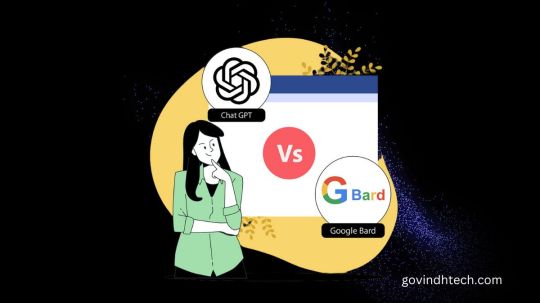
BARD vs ChatGPT Comparison Describe ChatGPT Ai-powered ChatGPT is a conversational chatbot that uses machine learning. Generative Pre-Trained Transformer (GPT) technology finds patterns in data sequences.
ChatGPT uses the GPT-3.5 language model trained on internet-sourced human-authored text. The premium ChatGPT Plus uses the enhanced GPT-4 model, boosting its capabilities. ChatGPT uses AI language models to answer user queries.
What’s Google Bard? Google Bard, an AI-driven chatbot, uses natural language processing and machine learning to mimic human conversations and use internet data to respond.
LaMDA was used for dialogue applications until Bard upgraded to Google’s PaLM 2 language model. This improved model outperforms its predecessors in common sense reasoning, logic, and mathematics.
Bard focuses on detailed responses like human conversation, unlike search engine results. It is a digital assistant like Alexa and Siri that provides concise, accurate information with links for more context.
Main Differences Between ChatGPT, Bard Both chatbots use natural language processing to respond to user queries like humans.
However, their diverse data sources and models of training make important differences.
BARD vs ChatGPT: Which Chatbot is best? Top features of Bard: Excellent Text Generation The text generated by Google Bard is similar to human writing and serves many purposes. It involves answering questions, summarizing, and translating.
Help with creative writing Google Bard can write job ads, hiring letters, and reports. This makes it useful for businesses.
Large dataset Google Bard learns from lots of text and code. It gives better, more detailed answers than smaller models.
Drafts feature If you want more information or want to change Bard’s initial statement, use his drafts. This displays different messages.
Write code in multiple languages Even when spoken in plain language, Google claims Bard can code simple and complex tasks in many programming languages.
Integration of Google Services Bard integrates with Google Docs, Sheets, and Gmail.
Supports multiple languages Bard speaks and translates Japanese, Korean, U.S. English and other languages.
Pros and Cons of Bard Advantages of Bard Bard uses current sources. Bard can answer with images. Bard users can resume previous chats. Bard responds to voice commands. Bard supports over 40 languages, including English, Japanese, and Korean. Bard offers multiple response drafts. Disadvantages of Bard Bard’s limitations may cause inaccurate or incomplete information. Bard can repeat data biases and respond offensively. Bard’s integrations are new and growing. It collects and stores user data, raising privacy and security concerns. Bard must cite sources, making accuracy verification difficult. Quotes from websites are cited and linked. Bard pricing and accessibility Google Bard is free for unlimited questions.
ChatGPT Top Features: Advanced Text Generation ChatGPT can write nearly perfect grammar, sense, and conversational text, unlike Bard. This helps with chatbots, summaries, and writing.
Contextual Understanding ChatGPT can understand the conversation and respond logically, unlike Bard. The attention trick highlights key words and phrases in a sentence.
Supports problem-solving and programming Simple tasks and regular language instructions are easy for the chatbot. Math, coding, language translation, and more are possible. ChatGPT supports Python, JavaScript, Java, and others.
Ability to speak multiple languages ChatGPT can understand and respond to multiple languages. It learns English, French, and others to overcome language barriers.
Creative expression ChatGPT uses creative language and coherent responses. To entertain users, it can write poems, jokes, puns, film plots, song lyrics, and more.
Continuous process of improvement User interactions shape ChatGPT’s learning. The language generation is improved by user feedback. ChatGPT makes responses more user-friendly over time.
Pros and Cons of ChatGPT Advantages of ChatGPT Due to its extensive text learning, ChatGPT can answer any question. Its answers are so good they sound human-written. Apps that need fast responses benefit from its speed. Since you can teach it different topics, it works with most apps. ChatGPT is cheaper than hiring a writer. This applies to blogging, news, and writing. Disadvantages of ChatGPT ChatGPT may have responded incorrectly because it learned from old data and has not been updated since September 2021. It may give biased answers because it learned from unfair data. This makes it prone to errors, especially when correcting questions. ChatGPT uses a lot of data but only what it knows It doesn’t understand the conversation, so it may give wrong answers. ChatGPT pricing and accessibility ChatGPT is free, but ChatGPT Plus costs $20 per month for extra features.
ChatGPT Plus offers:
Faster responses Even during peak hours, ChatGPT is available. Early access to new features and improvements. Similarities Google BARD vs. ChatGPT
Google Bard and ChatGPT Tested We reviewed both tools’ capabilities under different conditions. Our ChatGPT and Bard test results are as follows.
Receiving Facts Prompt: What is ChatGPT?
Bard response: ChatGPT is a chatbot developed by OpenAI and launched in November 2022. It’s essentially a large language model, just like me, designed to have human-like conversations and complete tasks like writing different kinds of creative text formats, translating languages, and answering your questions in an informative way. Here’s a quick breakdown of how it compares to me:
Similarities:
Both ChatGPT and I are large language models trained on massive amounts of text data. We can both hold conversations, answer your questions, and generate different creative text formats. Differences:
Developer: ChatGPT is developed by OpenAI, while I am developed by Google AI. Underlying technology: ChatGPT uses the GPT-3.5 and GPT-4 language models, while I use the PaLM family of models. Accessibility: ChatGPT has both free and paid tiers, while I am currently under research and not publicly available. Knowledge base: While I have access to and can process information from the real world through Google Search, ChatGPT’s knowledge base is limited to the information it was trained on, which primarily consists of text and code up to September 2021. This means my responses may be more up-to-date and grounded in real-world events. Overall, ChatGPT and I are both examples of advanced language models pushing the boundaries of what AI can do. While we share some similarities, we also have distinct characteristics and areas of expertise.
ChatGPT Response: ChatGPT is an artificial intelligence language model developed by OpenAI. It’s part of the GPT (Generative Pre-trained Transformer) series of models. ChatGPT is designed to understand and generate human-like text based on the input it receives. It can engage in conversation, answer questions, generate text based on prompts, and perform various natural language processing tasks.
Which to Pick? Users can choose ChatGPT or Bard based on their needs and preferences. ChatGPT, which improves based on user feedback, is useful for coherent responses, content and blog writing, and problem-solving. If ChatGPT’s website integration limitations worry you, we can help.
GetGenie is the best ChatGPT alternative for WordPress and SaaS integration. GetGenie uses ChatGPT NLP. GenieChat, its amazing AI chatbot, uses ChatGPT models’ API and offers many customizable options.
However, Bard’s real-time web searching and seamless Google integration make it a viable alternative. Both chatbots add to AI and offer diverse solutions for user needs with their unique abilities.
Read more on Govindhtech.com
0 notes